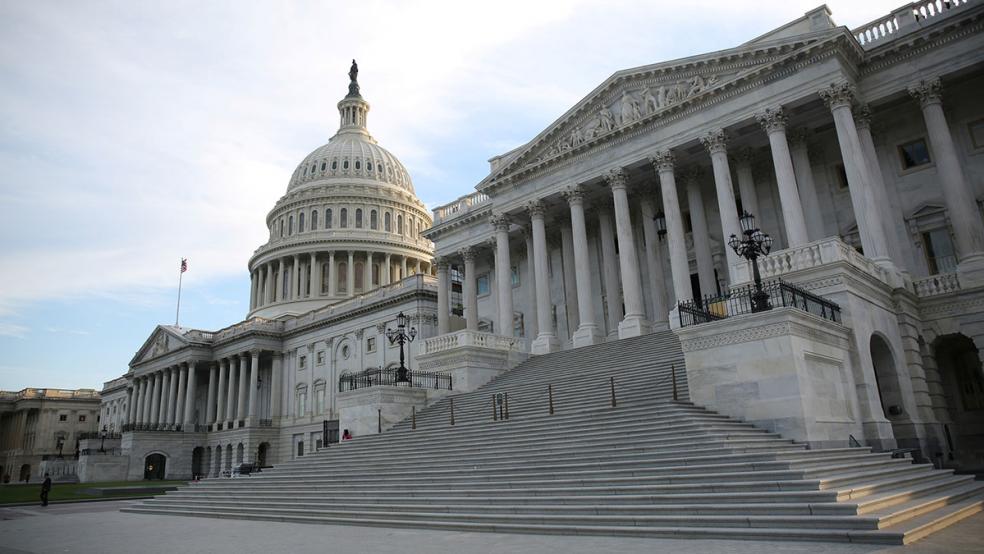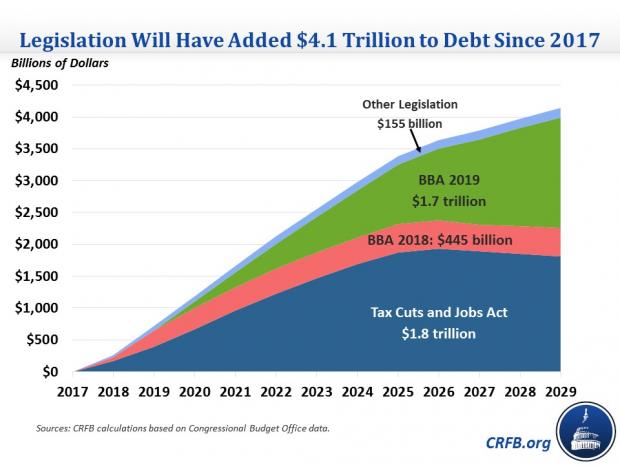The House on Thursday afternoon passed a two-year budget deal that would raise spending, suspend the debt ceiling through July 2021 and add an estimated $1.7 trillion to the national debt over the next decade.
The vote was 284-149, with a large majority of House Republicans opposing the bill despite President Trump’s urging them to support it. Only 65 Republicans voted for the bill, while 132 voted against it.
“House Republicans should support the TWO YEAR BUDGET AGREEMENT which greatly helps our Military and our Vets. I am totally with you!” Trump tweeted Thursday morning.
But most conservatives decided they could not side with the president on the deal, which would boost domestic and defense spending by more than $320 billion over the next two years. The legislation would set discretionary spending budgets of nearly $1.4 trillion for each of the next two years, including $738 billion for defense and $632 billion for non-defense programs in fiscal 2020.
The Committee for a Responsible Federal Budget said Thursday that, if the budget deal becomes law, legislation signed by President Trump — including tax cuts and increased spending — is expected to add $4.1 trillion to the national debt between 2017 and 2029. Over a traditional 10-year budget window, laws signed by Trump will add $3.4 to $3.8 trillion to the debt.
Both the Republican Study Committee and the House Freedom Caucus, two leading conservative groups, came out against the measure. “This is not draining the swamp — it’s feeding the swamp and entrenching the status quo,” House Freedom Caucus leaders wrote in a USA Today op-ed.
Opposition on the left was more muted, with progressive concerns over increased defense spending largely outweighed by satisfaction over securing additional funding for their priorities and bringing an end to spending caps imposed by the 2011 Budget Control Act, including $126 billion in automatic cuts that had been set to take effect next year.
“With this agreement, we can finally begin to end this harmful chapter of self-inflicted austerity,” the Congressional Progressive Caucus said Wednesday. “It’s not a perfect deal by any means. However, it will allow for major, long-overdue investments in domestic priorities – including housing assistance, food aid, education and job training.”
Just 16 Democrats voted against the measure.
The House is now set to adjourn for a six-week August recess. The Senate is expected to pass the budget deal next week.
The bottom line: The election politics behind the deal are clear. As Politico’s Nancy Cook and Burgess Everett note, in this budget fight, Trump chose the pragmatist (Treasury Secretary Steven Mnuchin) over the rabble-rousers (fiscal hard-liners like Mick Mulvaney, his acting chief of staff). The budget deal, once it passes the Senate and is signed into law, defuses the biggest potential fiscal fights remaining before the 2020 election, providing some certainty for the economy and markets.






